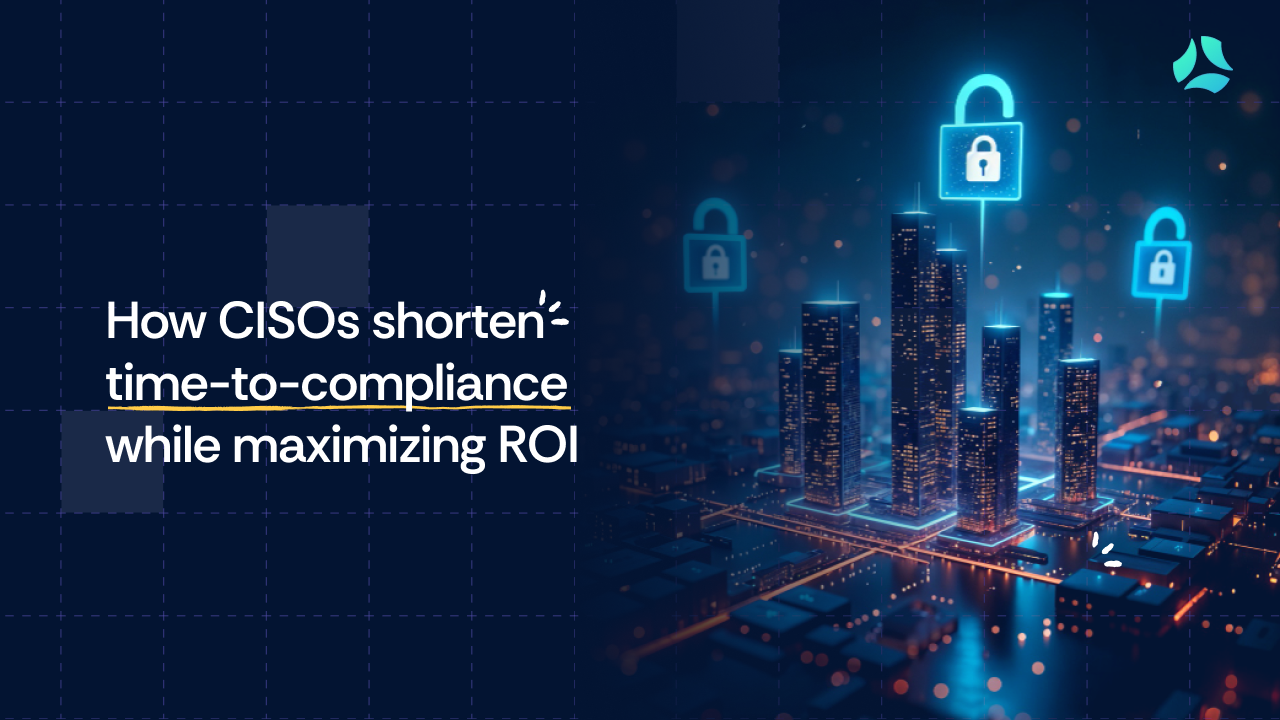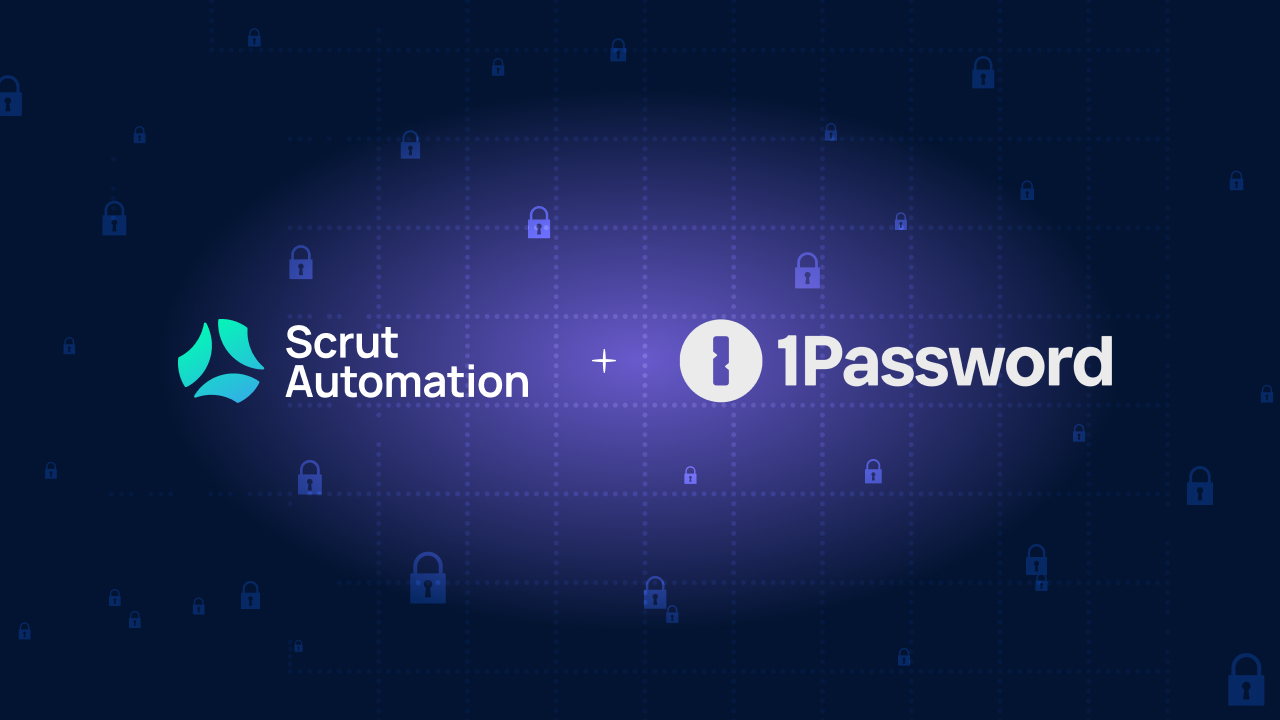Choose risk-first compliance that’s always on, built for you.
Go back to blogs
How to establish a security framework for B2B sales?
Last updated on
September 27, 2023
8
min. read

Security and B2B sales are intertwined by many underlying principles, one of which is the organization’s growth. When the question of sales arises, it is important to remember that clients have demands, a primary one being security.
It is not unusual for prospective clients or companies to ask for a security questionnaire or your organization’s SOC report. If your company anticipates and prepares for the requirement for a security proof or questionnaire, your B2B sales will most likely proceed effortlessly.
In some cases, however, the deal may not go through successfully because of the lack of proper security frameworks – thereby, hindering your growth and profitability.
In this article, we will discuss how your organization can establish a robust security framework with the intention of boosting sales and increasing productivity.
Why is a security framework important for B2B organizations?
You don’t have to be the CEO of an organization like Microsoft or Google to grasp the value of data security. Even small B2B companies or startups can face security issues in their everyday operations.
Data security is essential to running a successful business, primarily because it gives customers confidence that their data is being collected, processed, and transferred safely. Most B2B organizations participate in ensuring data security to guarantee the partnering firms that they are capable of protecting the client’s data.
Building a good security program for your organization will benefit you in the long run. If you haven’t addressed security as a major business problem from the start, it can be difficult to do so later.
An important advantage of leading your organization with data security is that you will be able to explain your company’s security procedures as part of your B2B sales strategy. It will give your organization the ability to garner more prospective clients.
But how can you do that? Read the next section to know more.
How to establish your organization as trustworthy using the security process?
Security audits are becoming more prevalent in the sales cycle, and rightfully so. If your organization handles and stores customer data, you can anticipate that your clients will be concerned about the security controls in your ecosystem.
This is primarily because of the potential of a data breach which may result in a financial and reputational loss for the organization. It has led prospective clients to look for methods that determine whether your firm can be trusted with critical data or not.
In order to gain the trust of potential customers and increase sales, your organization needs to prove that it is trustworthy enough to store and handle critical data by facilitating a security assessment. This security assessment can take various forms.
For instance, you might spend time describing your company’s security measures to potential prospects, share documentation of the security policies you created and followed, or respond to a vendor questionnaire designed by your prospect.
Alternatively, you may conduct a SOC 2 audit, which is the most proactive and likely the best approach to showing your company’s security.
Below we have discussed the pros and cons of vendor questionnaires and how organizations use them as a critical tool to conduct a security assessment.
Using vendor questionnaires as a tool for security assessment
A vendor security questionnaire is a tool that enterprises use to evaluate the security procedures of an organization before signing on to utilize their services. It is a lengthy document that can range from 30 to 300 objective questions delving into the intricacies of your organization’s security program.
Most organizations use a uniform questionnaire format to determine the security level but doing so is not mandatory since the range of questions can vary depending on the nature, size, and specifications of the organization.
One of the pros of using a vendor questionnaire as a tool for security assessment is that a company will be better served if it asks more questions about potential vendors upfront rather than discovering afterward that it did not adequately investigate its vendors’ policies.
Questions like ‘how will your organization help us comply with applicable laws?’ or ‘Is your organization using encryption technologies for data in transit and data at rest where it is technically feasible and legally permissible?’ can be included in the questionnaire to determine the organization’s capability beforehand.
How to use a security framework for increasing B2B sales?
Many organizations believe that simply having a security standard in place will provide them with the incentive to boost sales.
But in the present age when security is no longer a privilege, and with every organization adopting certain security practices to boost their sales, one question you need to ask is how does your organization stand apart from the competition? What are the ways in which your organization is using security to boost sales?
Here are a few ways you can use security frameworks to increase your organization’s B2B sales and strengthen your foundation simultaneously.
- Becoming proactive
It is no unknown fact that your sales cycle will slow down if you rely on a reactive, test-as-needed strategy that requires waiting for outcomes before proceeding with a transaction. Becoming proactive in your security standard will also provide you with a better reputation across the industry.
- Respond to vendor questionnaires effectively
Adopting a reactive security strategy can also result in some ambiguity while responding to vendor security questionnaires, making potential customers think that they might not obtain the correct results from you in a timely manner. Eventually, they may opt to move on to another SaaS provider due to this incompetence.
- Prove your security in B2B sales with proven methods
You can prove your commitment to security to organizations by implementing a proven secure application that demonstrates your willingness to engage in B2B negotiations. Year-round audits, compliance checks, and penetration testing are some other ways you can guarantee your prospects that your organization’s application security is up to pace.
What are some of the best security practices for B2B organizations?
Apart from pursuing compliance with leading industry standards like SOC 2, ISO 27001, GDPR, and so on to protect your organization against cyber threats, you can also incorporate security best practices in everyday operations to create a culture that prioritizes security over everything else.
Here are a few security best practices that we recommend every B2B organization must follow in order to combat random cybersecurity threats.
a) Be consistent in updating your software
A very important yet overlooked measure of security is software updates. These updates are not simply newer versions of software but also include better security details. If you fail to update your operating system or some tools on time, hackers will be able to access your device via infected software or compromised websites.
b) Make AI your friend
Instead of being apprehensive about artificial intelligence, use modern AI tools to advance your organization’s security. When you operate with an AI-powered security system, you have the option to report potential threats in advance.
c) Mask your digital presence with a VPN
One of the best ways to ensure hackers cannot target you is via VPN. A competent VPN service can hide your IP address, keeping you hidden from any intruder. It even offers immediate protection for your device and connections when working online via untrustworthy public WiFi.
d) Be mindful of your partners
As a B2B organization, it is expected that you will partner with other organizations, such as cloud storage providers, but that doesn’t mean security will take a back seat. Ensuring that the firms you partner with follow the same security practices as you are critical in maintaining the overall data security.
e) Conduct regular employee training
Employees must be aware of the position security holds in the overall performance of the organization. How can your staff be expected to prevent, report, or eradicate a security problem if they don’t know how to spot it? Conducting regular employee training is, therefore, a must in the long run for maintaining B2B security.
These security measures combined with security reviews make up the B2B security framework. It is the duty of the organization to overlook the implementation and execution of these best practices.
Conclusion
Boosting B2B sales through security reviews is not a far-fetched plan. Instead, it is s a growth strategy that most organizations often overlook. It can create trust among your vendors and clients while simultaneously generating more transactions, boosting the reputation of your organization significantly.
As major developments challenge the current security architecture, many of the traditional controls used for security will no longer be adequate. Implementing smart controls will be the only way to ensure cyber security in the long run. This is where Scrut comes in!
Scrut is a smart and radically simple Governance, Risk, and Compliance automation platform for growing startups and mid-market enterprises. With Scrut, Compliance teams can reduce ~70% of their manual effort in continuously maintaining compliance towards SOC 2, ISO 27001, GDPR, PCI DSS, and privacy laws like HIPAA, GDPR, and CCPA. Schedule your demo today to see how it works.
Frequently asked questions (FAQs)
1. What are B2B sales?
Instead of being between a business and a customer for the consumer’s own use, business-to-business (B2B) sales are transactions that occur between two businesses. Larger transaction amounts, a multi-stakeholder approval process, and a consequently lengthier sales cycle are some characteristics of B2B sales.
2. What do you mean by B2B sales funnel?
A B2B sales funnel or pipeline is a series of phases that B2B users go through in order to complete a sales cycle. With the onset of digitalization, cyber security plays a key role in maintaining a secure experience for users while they undergo the sales process.
3. How can an organization combine B2B sales training with a security framework for growth?
Any B2B organization wishing to expand its operations must provide proper training for its employees. This should include both B2B sales training and security training to create a holistic strategy that ensures the customers have a fruitful experience, consequently increasing the organization’s reputation.
Table of contents


















